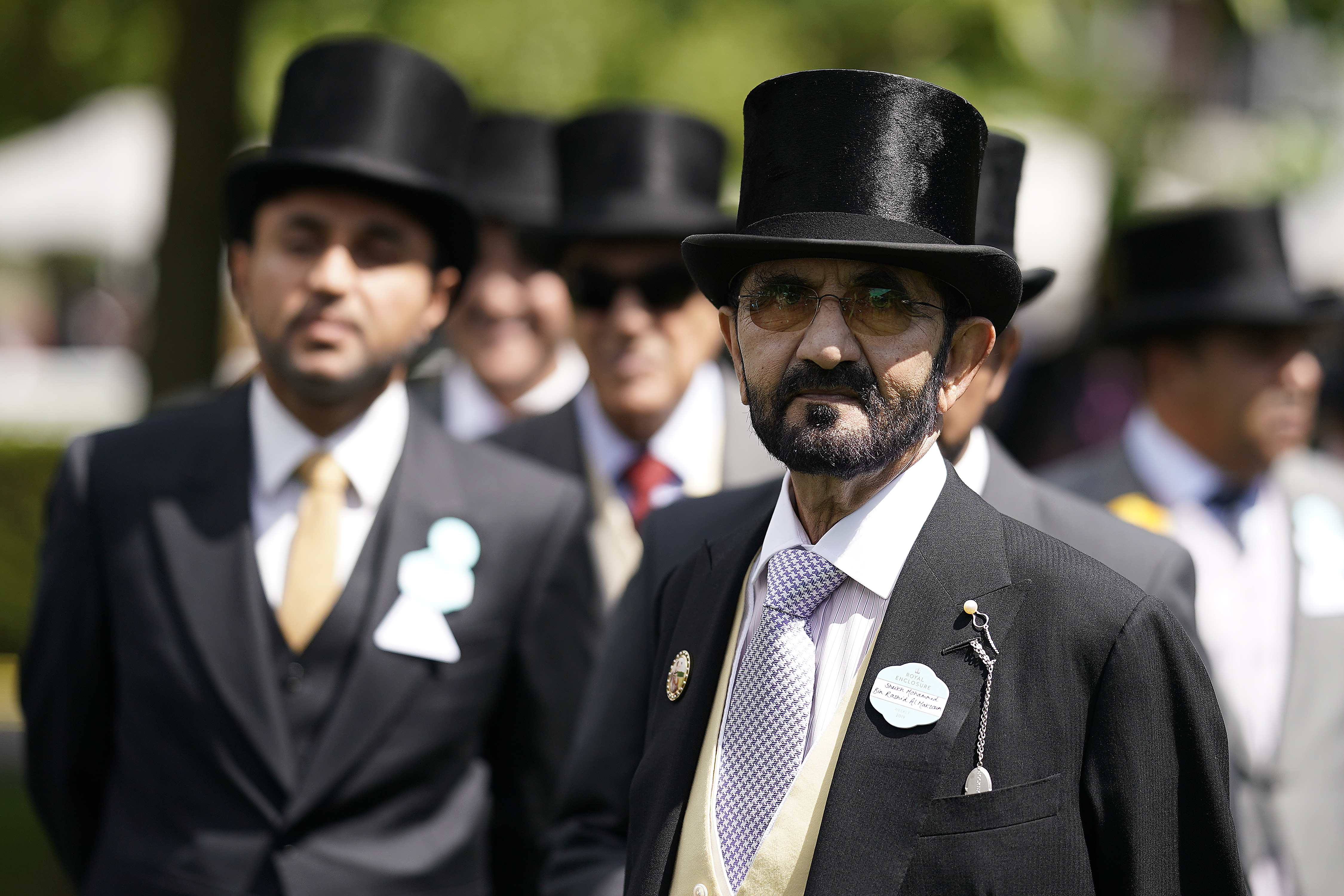Dubai’s Sheikh Mohammed shamed by UK court
A civil judgement has found UAE’s prime minister, a prominent member of British society, has abusively controlled the women around him


A free daily email with the biggest news stories of the day – and the best features from TheWeek.com
You are now subscribed
Your newsletter sign-up was successful
Britain’s High Court has found that the ruler of Dubai ordered the abduction and forced return of two of his daughters as they resisted his attempts to control them.
Sheikh Mohammed bin Rashid Al Maktoum, who is vice president and prime minister of the United Arab Emirates and the ruler of Dubai, is a high-profile public figure in the UK with connections to the Royal family, but the judge’s ruling, made public yesterday, severely damages his reputation.
The 70-year-old sheikh has been fighting bitterly for custody of two of his children for the last eight months with their mother, his estranged wife, Princess Haya Bint al-Hussein, and yesterday, his attempts to stop the court’s findings being made public with an appeal were dismissed by the Supreme Court.
The Week
Escape your echo chamber. Get the facts behind the news, plus analysis from multiple perspectives.

Sign up for The Week's Free Newsletters
From our morning news briefing to a weekly Good News Newsletter, get the best of The Week delivered directly to your inbox.
From our morning news briefing to a weekly Good News Newsletter, get the best of The Week delivered directly to your inbox.
Princess Haya, who became Sheikh Mohammed’s sixth wife in 2004, fled to London last April with their children, Jalila, 12, and Zayed, seven, after she had an affair with a British bodyguard.
Following the affair, said Andrew McFarlane, the president of the High Court’s Family Division, in a 34-page fact-finding ruling, Sheikh Mohammed subjected the princess to a campaign of “intimidation”.
–––––––––––––––––––––––––––––––For a round-up of the most important stories from around the world - and a concise, refreshing and balanced take on the week’s news agenda - try The Week magazine. Get your first six issues free–––––––––––––––––––––––––––––––
In May 2019, she said he told her that “you and the children will never be safe in England,” while the BBC reports he published a poem titled “You lived, you died”.
A free daily email with the biggest news stories of the day – and the best features from TheWeek.com
The judgement “risks destabilising diplomatic relations with the United Arab Emirates,” says The Guardian, as “ministers, police and prosecutors are under pressure to bring the ruler of Dubai to justice.”
The allegations of abduction and torture were focused on two of the sheikh’s other children, and were brought by Princess Haya, 45, as she sought to convince the court to make the children its wards to protect them from their father.
In an infamous case, Mohammed’s daughter, Princess Shamsa, was kidnapped on the streets of Cambridge while on a family holiday in 2000 as a 19-year-old and taken back to Dubai. Princess Latifa, 34, was the subject of a widely covered escape attempt from the UAE in 2018, but was intercepted off the coast of India and returned by force.
In a video she made explaining her reasons for attempting escape, Princess Latifa accused her father of detaining and maltreating her and her sister Shamsa.
“The allegations that the father ordered and orchestrated the kidnap and rendition to Dubai of his daughters Shamsa and Latifa are of a very high order of seriousness,” said McFarlane in his ruling.
“The allegation that Shamsa has been deprived of her liberty for much if not all of the past two decades, living in circumstances as described by Latifa, is, I find, proved,” he said.
The judgement, he continued, “may well involve findings, albeit on the civil standard of behaviour which is contrary to the criminal law of England and Wales, international law, international maritime law, and internationally accepted human rights norms.”
The sheikh’s “fall is… spectacular considering that Britain – a country he has revered since studying here as a boy – has been the author of his humiliation,” says The Telegraph. “The 70-year-old billionaire, with lavish homes in the south of England, came to count the Queen as a personal friend, in part due to their shared passion for horse racing.”
A statement issued by the sheikh’s lawyers on his behalf criticised the fact that the details have been made public.
“This case concerns highly personal and private matters relating to our children,: the statement said. “The Appeal [for privacy] was made to protect the best interests and welfare of the children. The outcome does not protect my children from media attention in the way that other children in family proceedings in the UK are protected.”
“As a Head of Government, I was not able to participate in the Court’s fact-finding process, this has resulted in the release of a “fact-finding” judgment which inevitably tells only one side of the story. I ask that the media respect the privacy of our children and do not intrude into their lives in the UK.”
William Gritten is a London-born, New York-based strategist and writer focusing on politics and international affairs.
